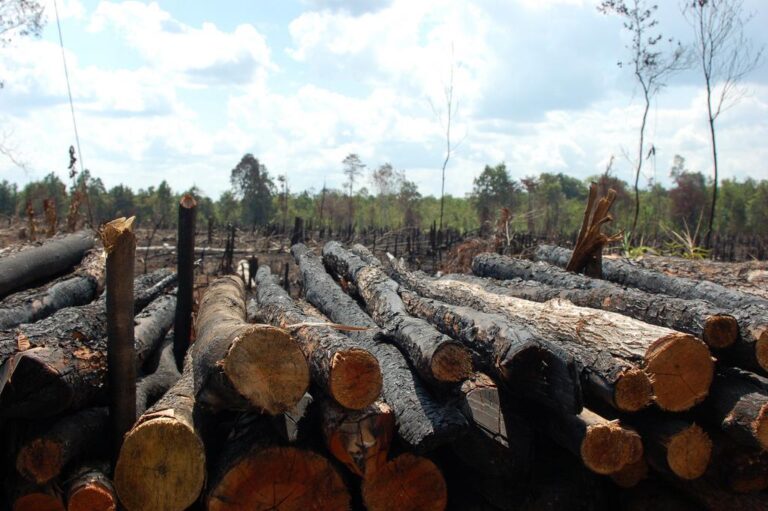Illegal logging operations are exploiting Brazil’s burgeoning carbon credit market, undermining conservation efforts and raising concerns about the integrity of environmental initiatives. According to a Reuters investigation, criminal networks are profiting from carbon offset projects designed to reduce deforestation, casting doubt on the effectiveness of these schemes in preserving the Amazon rainforest. This development highlights the challenges facing Brazil as it balances economic interests with global climate commitments.
Illegal Logging Undermines Integrity of Brazil’s Carbon Credit Market
Recent investigations reveal that illegal logging activities are infiltrating Brazil’s carbon credit projects, raising serious concerns about the authenticity of the environmental benefits claimed by these initiatives. Criminal networks exploit loopholes within the certification systems, harvesting timber without authorization and then leveraging these proceeds to gain carbon credits unjustly. This malpractice not only dilutes the effectiveness of global climate mitigation efforts but also erodes investor trust in the market, potentially driving away ethical participants who rely on transparency and accountability.
Key factors contributing to the problem include:
- Weak enforcement of forest protection laws in remote regions.
- Insufficient traceability mechanisms within carbon credit verification.
- Value chain opacity, allowing illicit timber to mix with legally sourced wood.
- Corruption among local authorities that facilitates illegal operations.
| Impact Area | Effect of Illegal Logging |
|---|---|
| Carbon Credit Value | Devaluation due to non-compliance issues |
| Forest Conservation | Accelerated deforestation and degradation |
| Investor Confidence | Significant decline amid market uncertainties |
| Global Climate Goals | Compromised carbon reduction targets |
Revealing Loopholes Enabling Fraudulent Profits in Environmental Projects
At the heart of Brazil’s sprawling carbon credit projects, a series of systemic loopholes have allowed illegal logging syndicates to siphon off significant environmental funds. These gaps in regulatory oversight have created a fertile ground for fraudulent transactions, where permits are either forged or manipulated, enabling unmonitored deforestation to continue under the guise of conservation efforts. The complexity and opacity of carbon credit certification processes further complicate accountability, leaving enforcement agencies struggling to track the true environmental impact of supposedly sustainable projects.
Key factors contributing to this fraud include:
- Lack of real-time satellite monitoring integrated with on-ground verification
- Insufficient transparency in carbon credit ownership chains
- Inadequate penalties failing to deter repeat offenders
| Loophole | Impact | Suggested Remedy |
|---|---|---|
| Forgery of land-use permits | Unauthorized logging continues unchecked | Implement blockchain-based permit tracking |
| Delayed emissions verification | Fraudulent credits issued | Mandate quarterly independent audits |
| Opaque ownership transfers | Funds diverted from conservation | Public registries of credit holders |
Strengthening Oversight and Enforcement to Protect Brazil’s Forest Conservation Efforts
Recent investigations have unveiled how illegal logging operations have infiltrated Brazil’s carbon credit markets, exploiting loopholes and undermining forest conservation initiatives. Authorities are now emphasizing the urgent need for robust oversight mechanisms and stricter enforcement protocols to close these gaps. Without immediate intervention, the credibility of carbon offset programs is at risk, potentially reversing years of progress in mitigating deforestation and preserving biodiversity.
Key measures being proposed include:
- Enhanced satellite monitoring complemented by ground inspections to track illegal activities in real-time.
- Faster judicial processes to penalize offenders and dismantle illegal logging networks.
- Transparent reporting frameworks for carbon credit projects to ensure accountability.
- Collaboration with indigenous communities as frontline defenders of the forest.
| Oversight Component | Current Challenges | Proposed Improvements |
|---|---|---|
| Monitoring Technology | Low resolution images, delayed alerts | Real-time satellite tracking, AI analysis |
| Legal Enforcement | Slow prosecution, insufficient penalties | Expedited trials, heavier fines, asset seizure |
| In Summary
As investigations continue to uncover the extent of illegal logging linked to Brazil’s carbon credit schemes, questions remain about the effectiveness and oversight of these projects. With environmental and economic stakes high, authorities and stakeholders face increasing pressure to ensure that carbon markets contribute to genuine forest conservation rather than illicit profit. The unfolding developments will be crucial in shaping the future credibility of carbon trading initiatives in the world’s largest tropical forest. |




